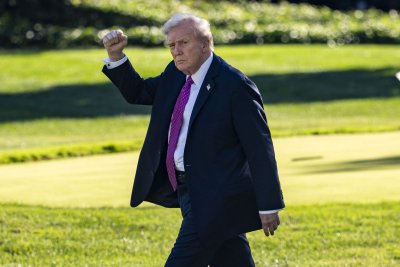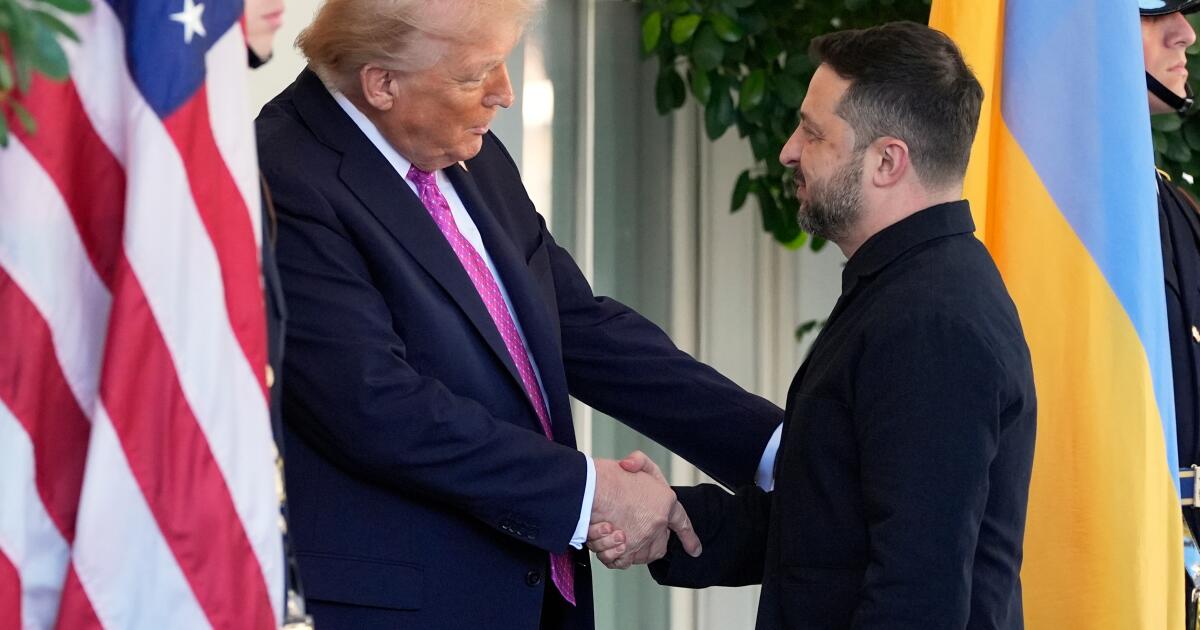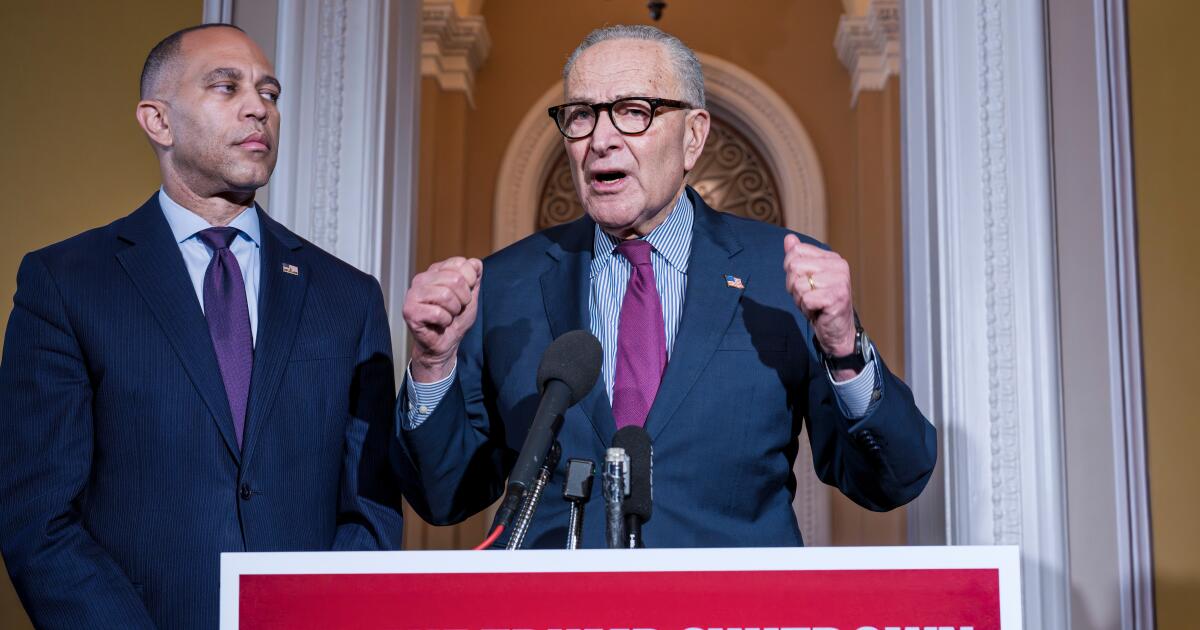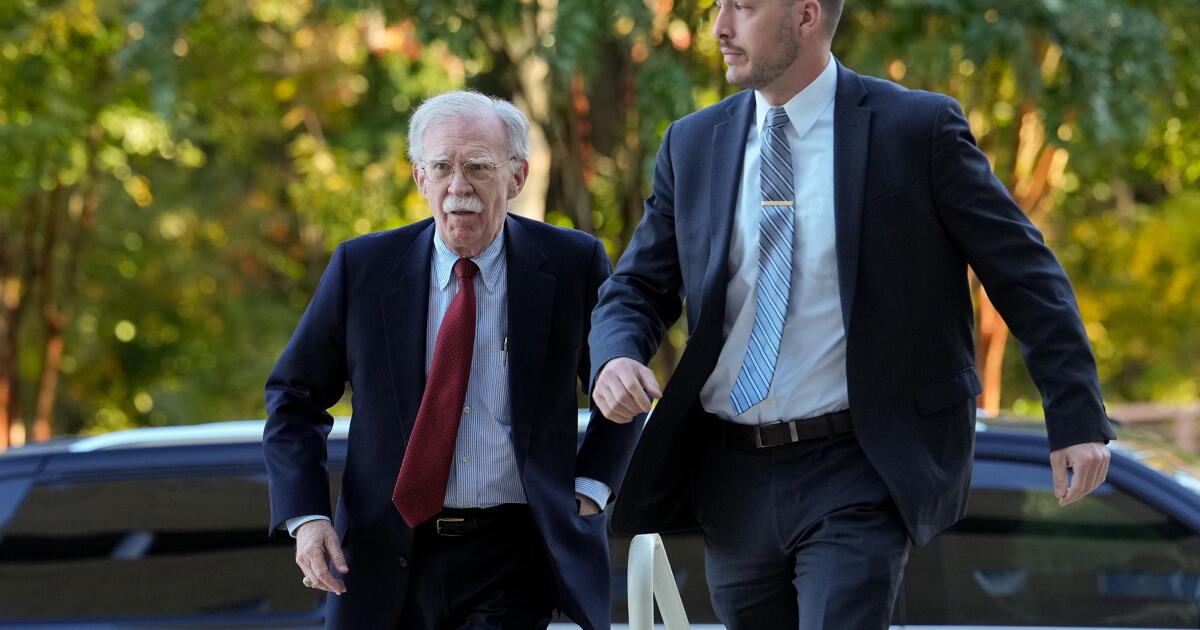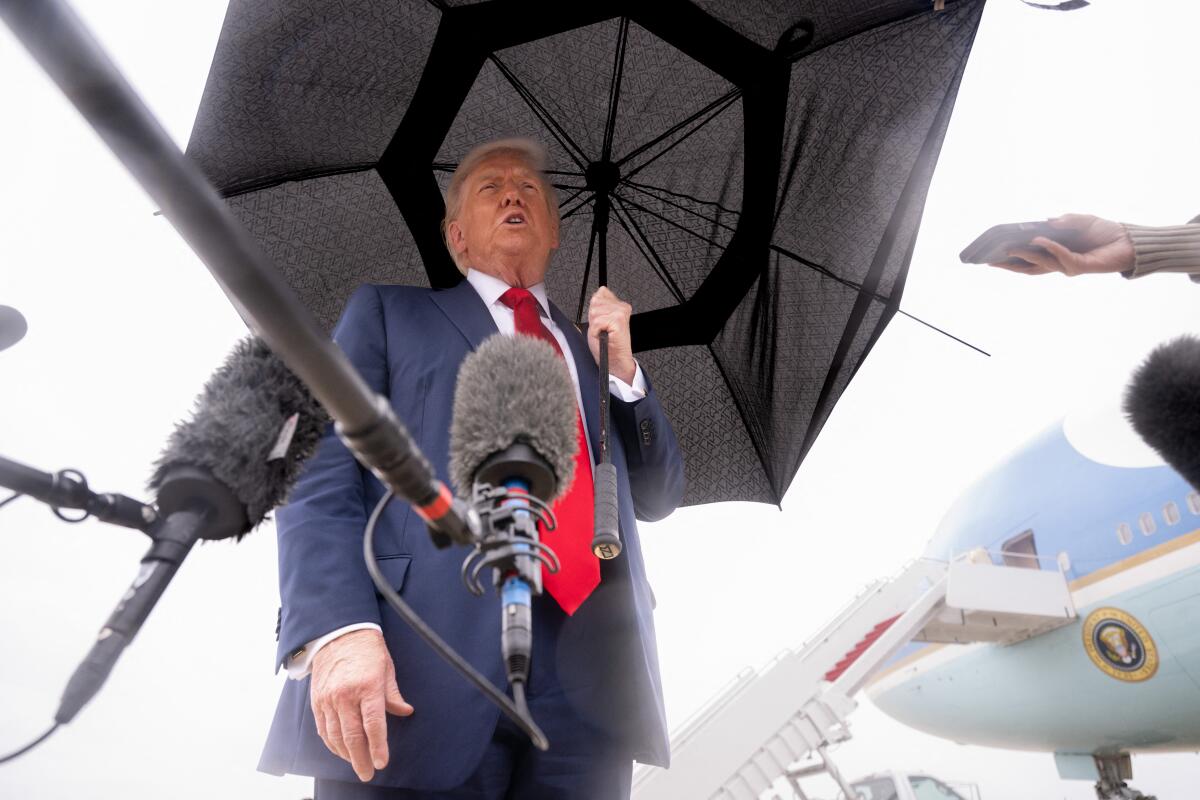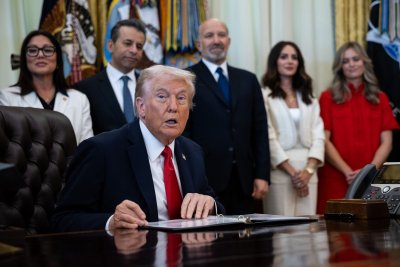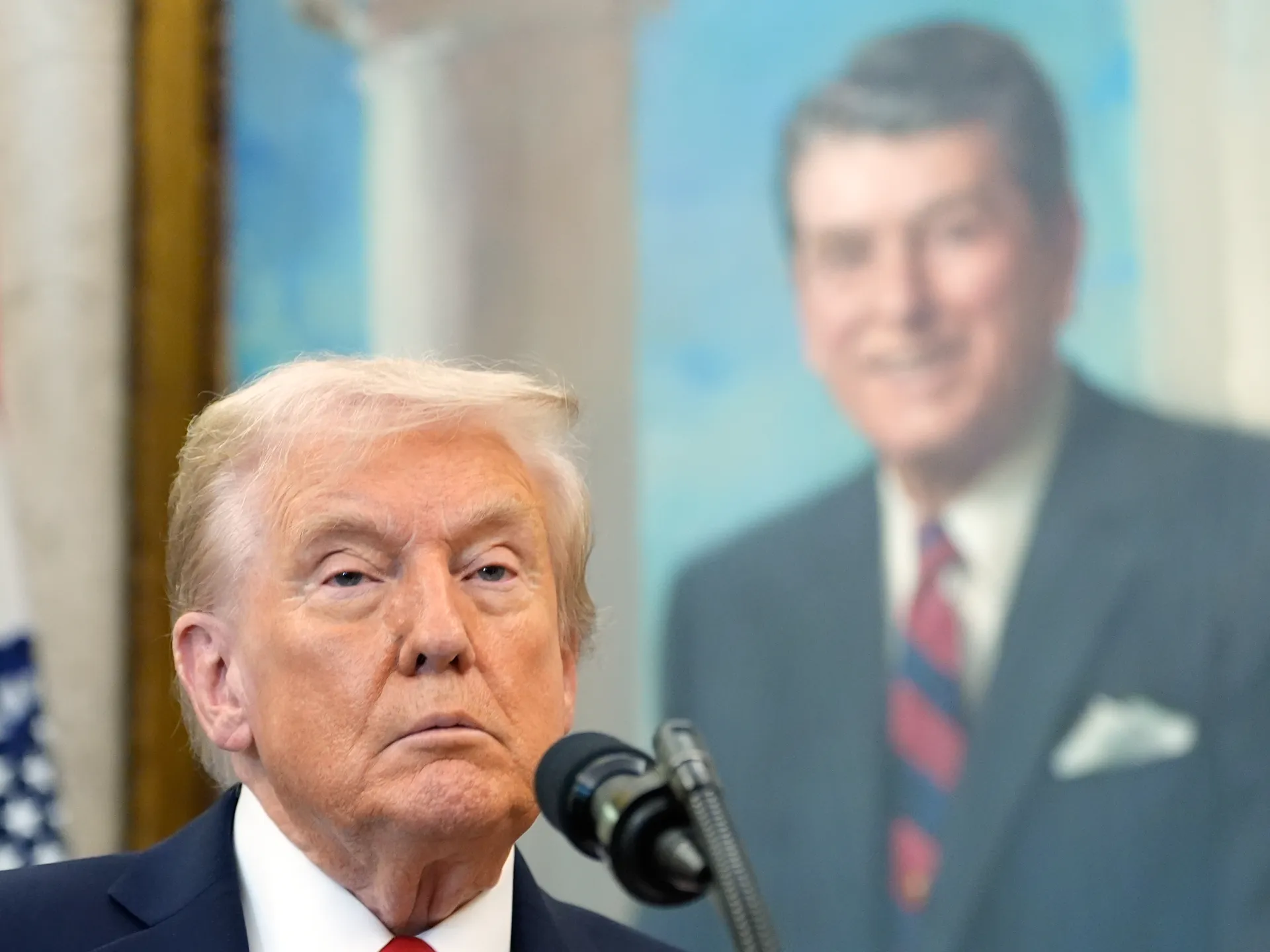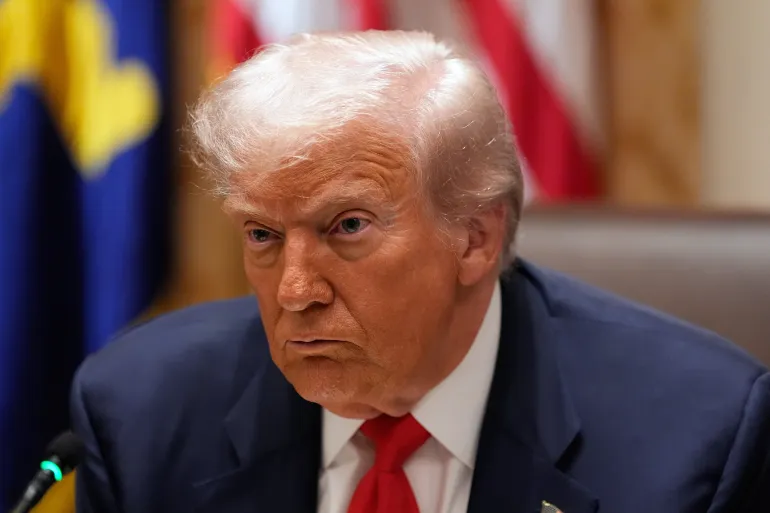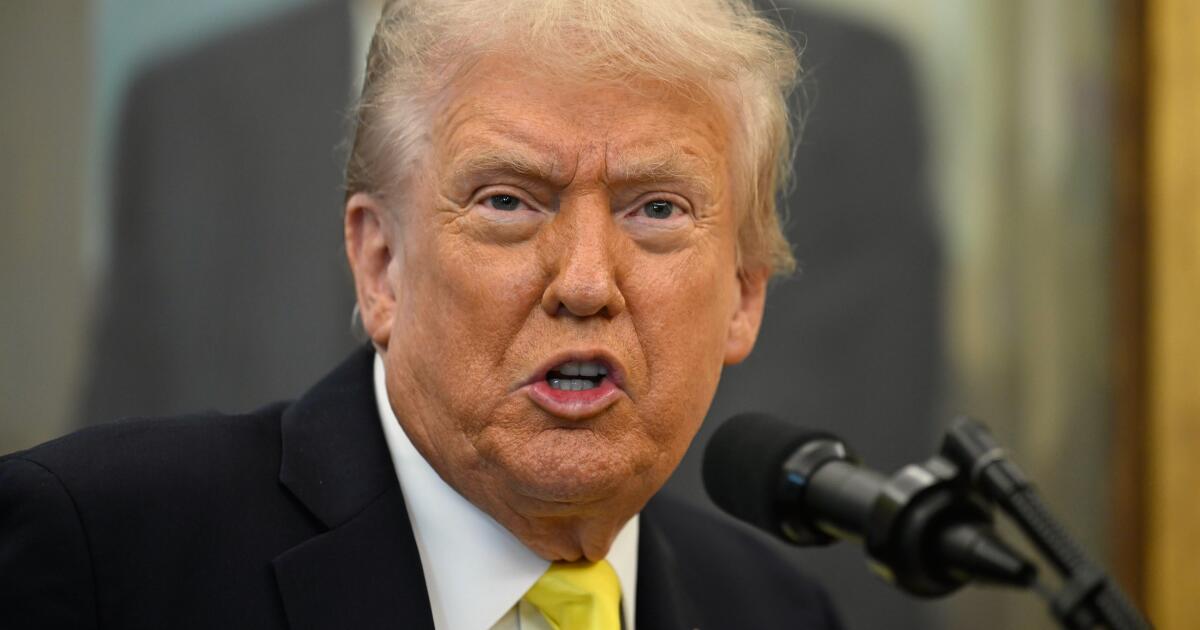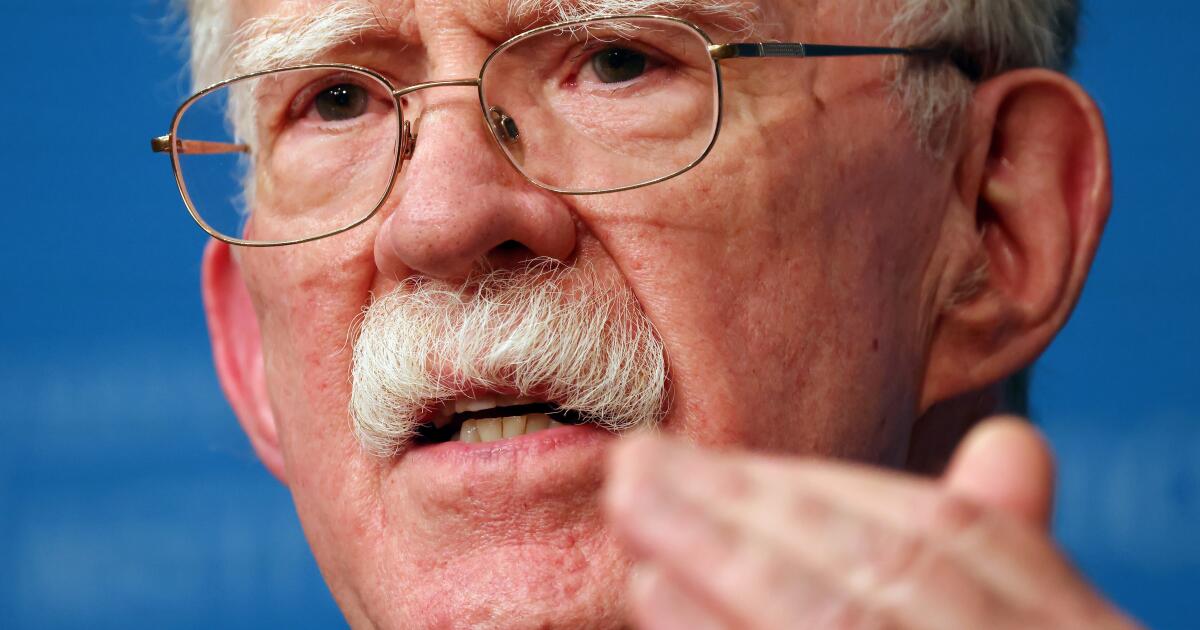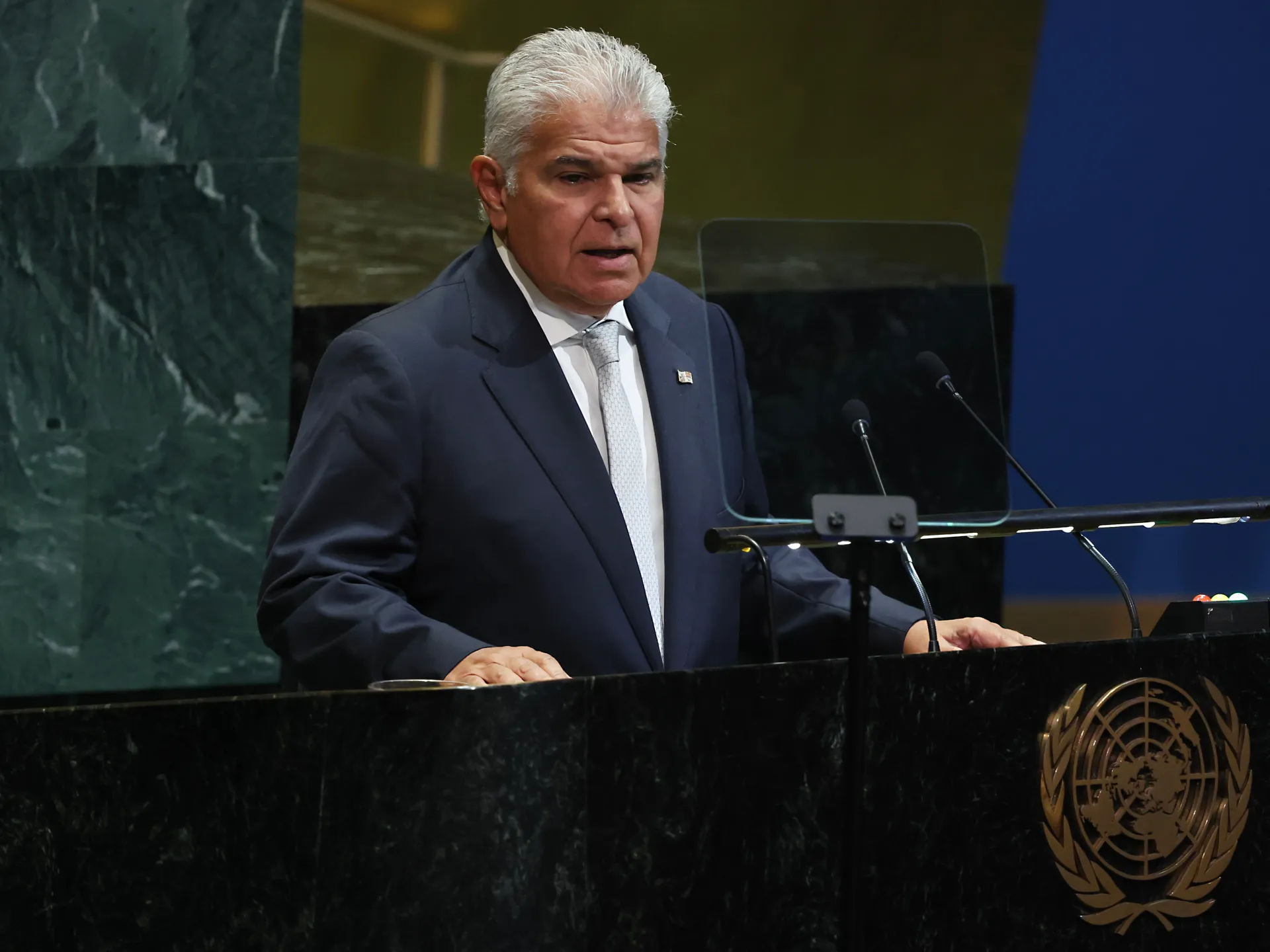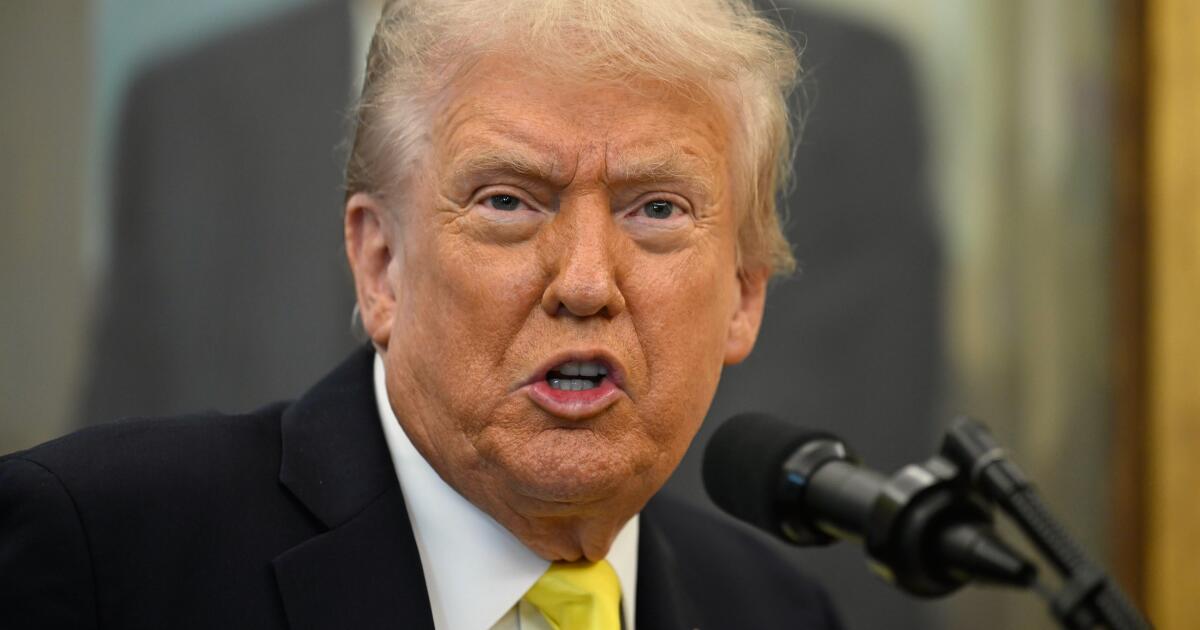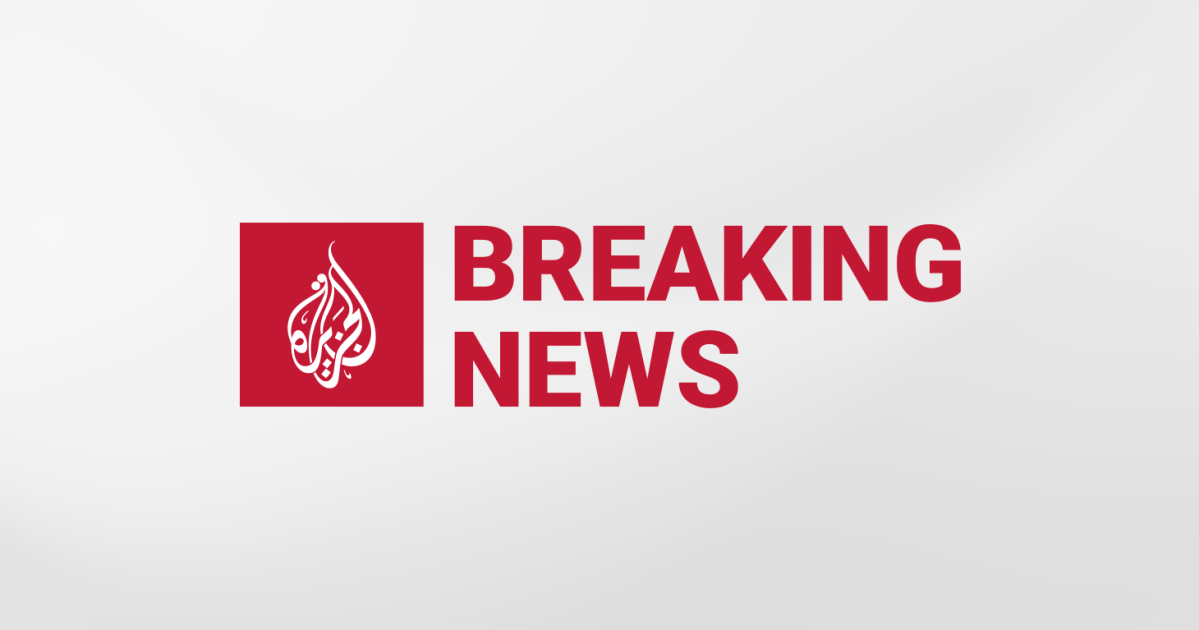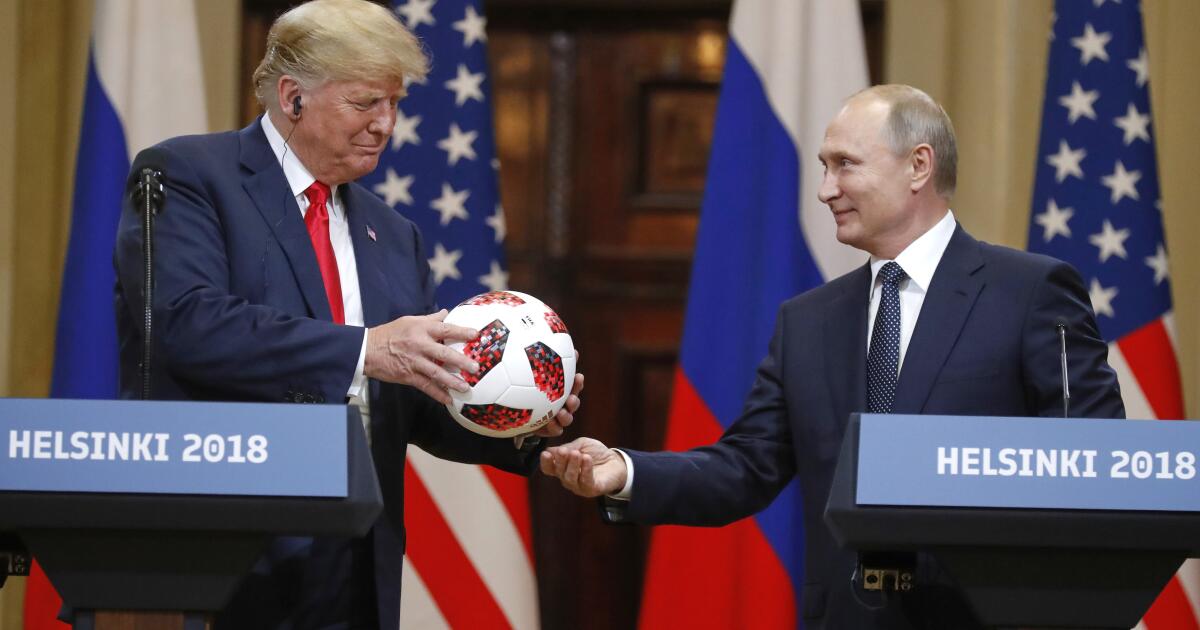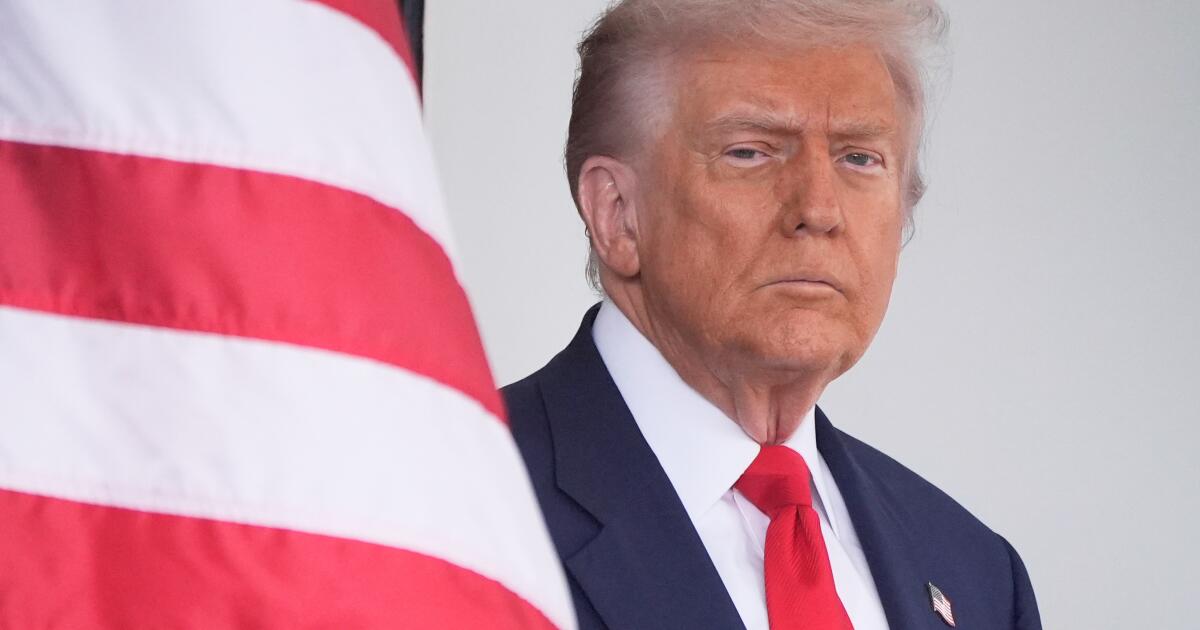It was a major talking point in the final months of Donald Trump’s 2024 presidential campaign: If re-elected, the Republican leader pledged to make in vitro fertilisation (IVF) free for those seeking to get pregnant.
“Under the Trump administration, we are going to be paying for that treatment,” Trump told NBC News last year, adding that his plans would cover “all Americans that get it, all Americans that need it”.
Recommended Stories
list of 3 itemsend of list
“We’re going to be paying for that treatment. Or we’re going to be mandating that the insurance company pay.”
While that campaign promise remains unrealised, the Trump administration took a step on Thursday to make the procedure more accessible.
Speaking from the Oval Office, Trump announced a collaboration with the company EMD Serono, a subsidiary of the pharmaceutical giant Merck, to offer lower-priced fertility drugs on his upcoming prescription marketplace, TrumpRx.
“ EMD Serono, the largest fertility drug manufacturer in the world, has agreed to provide massive discounts to all fertility drugs they sell in the United States, including the most popular drug of all, the IVF drug Gonal-F,” Trump told reporters.
Expanding TrumpRx project
The announcement marks the third major pharmaceutical company to agree to provide discounted products on TrumpRx, a direct-to-consumer website slated to launch in 2026.
Trump had threatened drug companies in September with a 100-percent tariff on their products unless they started to build manufacturing facilities in the US.
But that tariff was postponed after the pharmaceutical manufacturer Pfizer announced a deal with TrumpRx on September 30, a day before the tax hike was slated to hit. AstraZeneca, another power player in the industry, followed suit last week.
In Thursday’s news conference, Trump once again credited his tariff threats with bringing the companies to heel.
“They’ll bring a significant portion of their drug manufacturing back to the United States,” Trump said of EMD Serono. “That’s for a lot of reasons, but primarily because of the election result, November 5th, and maybe most importantly because of the tariffs.”
In addition to the forthcoming discounts from EMD Serono, Trump indicated he would encourage insurance companies to expand coverage for IVF treatments.
In the US, laws vary by state as to whether health insurance must cover fertility treatments like IVF. Trump touted the guidance as a breakthrough in making reproductive healthcare more accessible and affordable.
“Effective immediately, for the first time ever, we will make it legal for companies to offer supplemental insurance plans specifically for fertility,” Trump said.
“ Americans will be able to opt in, do specialised coverage, just as they get vision and dental insurance.”
Those plans typically come at an extra fee, on top of regular health insurance rates. That raises questions about how effective the new insurance guidance will be.
More than 26 million Americans – roughly 8 percent of the population – are uninsured, according to US census data. Even more lack access to supplemental policies for dental and vision care.
The American Dental Association, an industry professional group, estimates more than 22 percent of US adults lacked dental insurance as of 2021.
Trump seemed to acknowledge gaps in coverage during his remarks, but he maintained that the new government guidance would offer some adults a pathway to parenthood.
“They’re going to get fertility insurance for the first time,” he continued. “So I don’t know. I don’t know how well these things are covered.”
A campaign-trail controversy
The Republican leader also credited a 2024 court decision with propelling him to focus on IVF treatments.
IVF involves removing eggs from a patient’s ovaries and fertilising them in a laboratory environment. These eggs are then inserted into the patient’s uterus or frozen for future use.
The use of such treatments is on the rise in the US: In 2023, the American Society for Reproductive Medicine found that 95,860 babies were born as the result of an IVF procedure.
But in February the following year, a ruling from the Alabama Supreme Court prompted fears about whether IVF would remain widely available.
In a novel decision, the court – located in a strongly conservative state – ruled that embryos created through IVF could be considered children under state law, thereby making the destruction of such embryos potentially a criminal act.
The decision sent shockwaves throughout the IVF industry, with clinics in Alabama temporarily suspending services. Discarding embryos is standard practice in IVF: Generally, more eggs are collected than will ultimately be used, and not all fertilised eggs will be suitable to start a pregnancy.
Within weeks, the Alabama state legislature stepped in to shield IVF providers from prosecution. But the ruling created lingering concerns that IVF could be targeted by anti-abortion rights advocates.
On Thursday, Trump revisited that controversy, which happened in the midst of his re-election bid. He called the court’s ruling a “bad decision” and credited it with helping to make him aware of IVF.
“I wasn’t that familiar with it,” Trump said. “Now I think I’ve sort of become the father.”
Senator Katie Britt, who represents the state of Alabama, echoed that evaluation, praising Trump for taking steps to protect IVF.
Thursday was not the first time Trump has gestured at lowering costs for the fertility procedure. In February, he also issued a presidential order calling on his administration to start “protecting IVF access and aggressively reducing out-of-pocket and health plan costs”.
“ Mr President, this is the most pro-IVF thing that any president in the history of the United States of America has done,” Britt told Trump on Thursday. “You are the reason why the Republican Party is now the party of parents.”
Addressing the US birthrate
Trump, who previously called himself the “fertilisation president” during a Women’s History Month event, also framed the new measures as progress towards increasing the US birthrate.
In April, the Centers for Disease Control and Prevention (CDC) reported that fertility remained at a historic low, rising slightly in 2024 to 1.6 births per woman.
Those numbers have fuelled a push within the Republican Party to ignite a new baby boom, with right-wing figures like tech billionaire Elon Musk going so far as to call the low birthrate “the biggest danger civilization faces by far”.
At Thursday’s meeting, top figures in the Trump administration echoed those concerns, including Health and Human Services Secretary Robert F Kennedy Jr.
“We are below replacement right now,” he said, referencing the number of births needed to outpace deaths in the US. “That is a national security threat to our country.”
Mehmet Oz, who serves under Kennedy as the administrator for Medicaid services, took a more positive approach, framing the new IVF guidance as the beginning of a reversal of that downward trend.
“There are going to be a lot of Trump babies,” Oz quipped. “I think that’s probably a good thing. But it turns out the fundamental creative force in society is about making babies.”
But it remains to be seen if insurance companies and employers will follow through with Trump’s guidance to offer supplemental fertility benefits for adults seeking to get pregnant.
Most Americans receive health insurance as part of their workplace benefits. Senator Britt argued the guidelines would put employers “in the driver’s seat”, allowing them to shape the benefits they offer to their workers.
“Employers are going to be able to decide how to cover the root causes of infertility, things like obesity and metabolic health, and other things that are impacting infertility,” she said. “We want employers to be the ones that can make those decisions, not the government.”
But for Democrats, the guidance fell far short of what Trump promised on the campaign trail.
“Donald Trump lied when he pledged to make IVF available to every family for FREE,” Senator Elizabeth Warren of Massachusetts posted afterwards on social media. “It’s insulting – a broken promise.”
